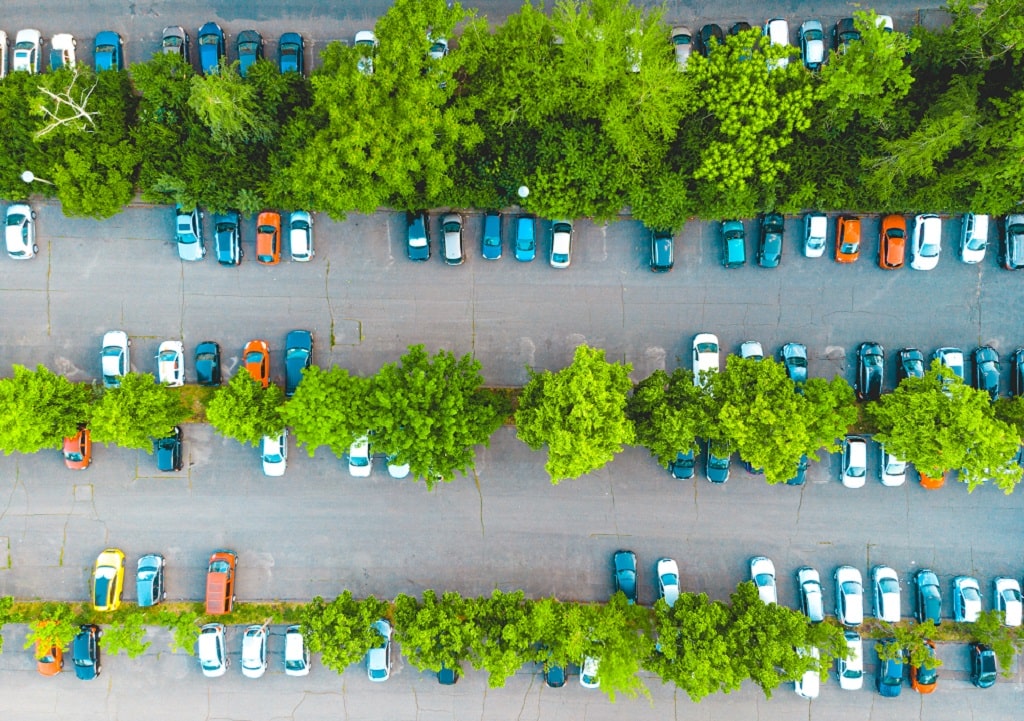What would you choose between a tree-lined parking lot and a barren, heat-absorbing one? If you want your customers to have a pleasant experience when they visit your business, the answer is clear – parking lot trees offer some profound benefits. If you’re thinking of adding them to your parking lot, CollinsBrooke Landscape Construction in Simpsonville, SC, can give your space the makeover it craves.
But not just any trees will do – you need to choose the suitable species for the job. To this end, here are some helpful tips from the firm to help you choose the right ones:
-
Tolerance of Harsh Conditions
Trees in a parking lot can go through a lot. For instance, they may be exposed to car exhaust and other pollutants.
They might also be subject to drought conditions. As the parking lot bakes in the sun, the tree’s roots may not have access to enough water. The situation may worsen if the tree is surrounded by concrete, asphalt, or other materials that prevent water from seeping in. And the reflection from adjacent cars or structures can intensify heat and light on the tree, stressing it even more.
Compacted soil is also an issue in parking lots. As cars drive over the root zone, the tree’s roots may not have enough room to spread out and absorb water and nutrients. The roots may start to circle, which can girdle and kill the tree.
What’s more, the design of a parking lot – with all the concrete and asphalt – doesn’t provide the best drainage. As a result, water can pool around your tree’s roots, leading to problems such as disease. Additionally, de-icing chemicals can build up in the soil and damage the tree’s roots.
Clearly, a parking lot isn’t the ideal environment for every tree. To ensure your trees can serve their purpose, check to see if they are tolerant of these harsh conditions.
Click here – How Does A Walkway Impacts Curb Appeal?
-
Low In maintenance
No one wants to spend a lot of time and money on maintaining their parking lot trees, especially if your budget is tight. Besides, you could have a lot on your plate, making it challenging to find the time to care for your trees. To save you some headaches, it’s advisable to select low-maintenance trees. Some of the features you should look for include the following:
- Minimal pruning requirements
- Resistance to pests and diseases
- Tolerance of harsh conditions (as mentioned above)
- Ability to withstand heavy foot traffic
- Low water needs
Some of the best low-maintenance trees for parking lots include American elm, bald cypress, and Ginkgo. The idea is to find trees that can thrive in your parking lot with minimal care.
-
Minimal Debris Production
Trees can quickly transform your parking lot into a mess despite providing ample shade and enhancing the look of your outdoor area. This is especially true if the species you select produces a lot of leaves, flowers, or fruit.
While some people don’t mind this type of debris, others would prefer a species that doesn’t produce as much. If you fall into the latter category, select a species that produces minimal debris.
-
Non-invasive Root Systems
The roots of a parking lot tree can cause all sorts of problems. They can damage the asphalt, heave sidewalks, and clog drains. If you choose a species with an aggressive root system, you may have to deal with these issues. To avoid this, select a species with a non-invasive root system.
Click here – How Landscaping Enhances Your Business?
-
Size
The size of your parking lot may impact the type of tree you choose. For starters, it’s logical to plant a species that won’t outgrow its space and cause issues. Conversely, the tree shouldn’t be too small and fail to offer the desired effect.
To find a happy medium, consider the size of the tree at maturity. That way, you can select the right-sized species for your parking lot. That said, based on size and the other we’ve discussed variables, some common parking lot-friendly trees include:
- Small – Japanese maple, eastern hornbeam, and Kousa dogwood.
- Medium – Superform maple, Chinese pistache, and heritage birch.
- Large – Blue atlas cedar, European hackberry, Rosehill ash, autumn gold, canary Island pine, and black oak.
Some options are better for turf parkways, while others are suitable for concrete parking lots. Before committing to any species, have a clear understanding of your options. In short, do some digging or talk to your go-to landscaper to determine the ideal trees for your space. By so doing, you can switch up the look of your parking lot and give your business a new lease on life.

